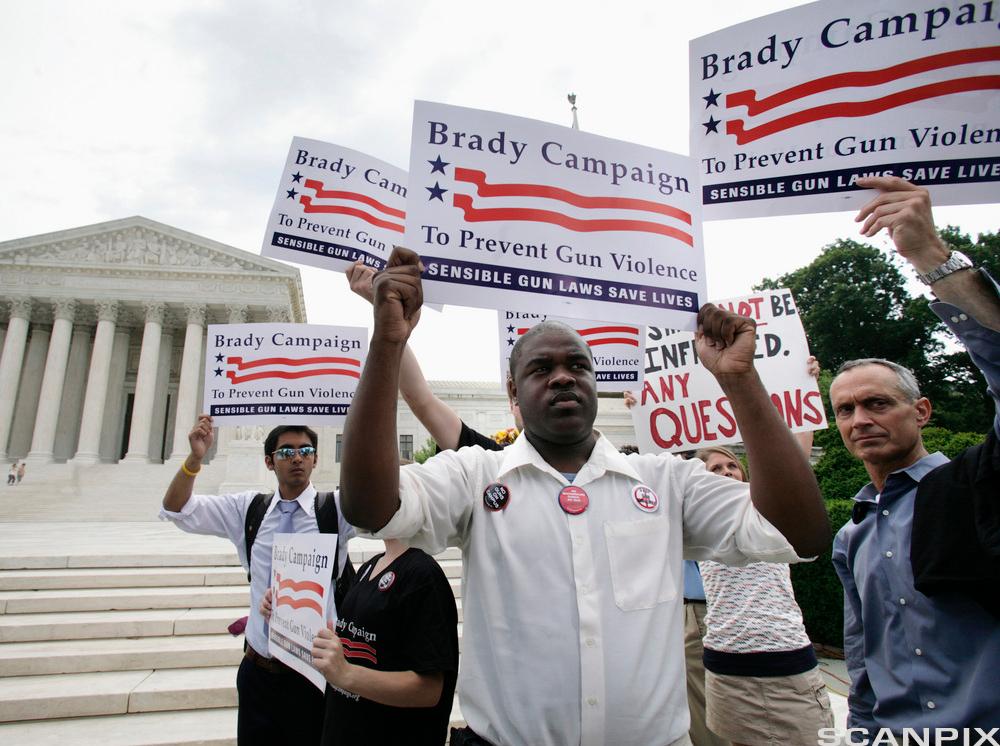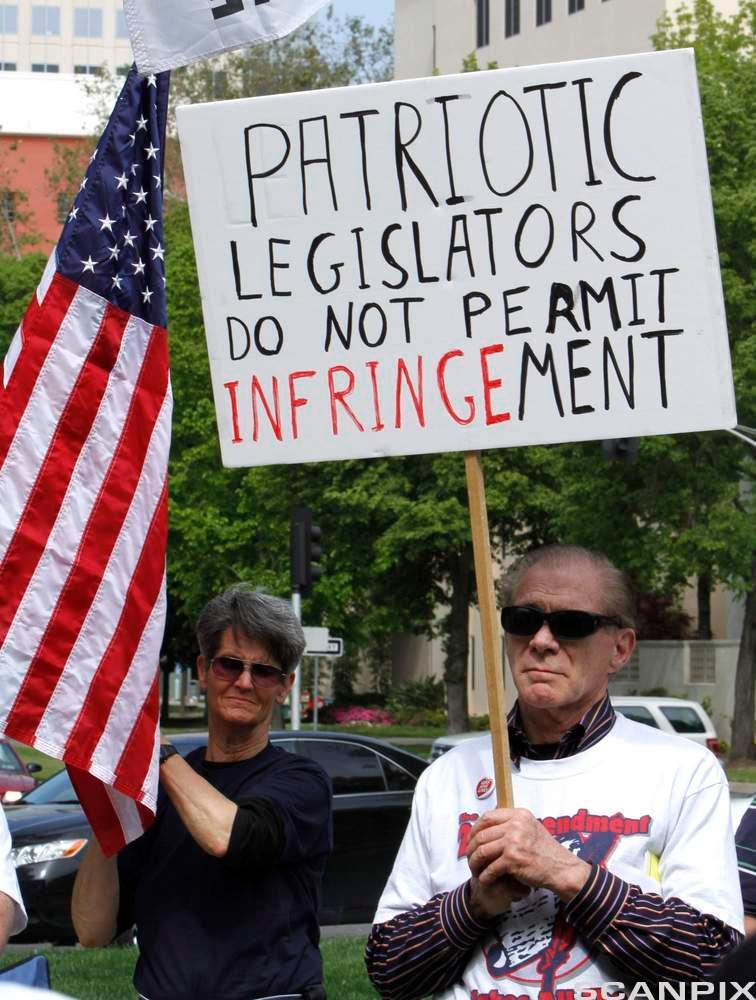The Right to Bear Arms

A well regulated militia being necessary to the security of a free State, the right of the People to keep and bear arms shall not be infringed.
– Second Amendment to the US Constitution

Throughout much of American history the right to own and use guns has been regarded as a cornerstone of American liberty. According to many Americans, this is a right which belongs to all free citizens and cannot be taken away from them.
However, today many will argue that “the right to keep and bear arms” has gone from being a blessing to being a curse. Over 30,000 Americans are killed every year as a result of gun violence, and few other countries have experienced a similar crime rate. This has fueled the gun control controversy which has been in the forefront of public debate for the last 40 years.
In order to understand the world we are living in today, we often explain the present by pointing to the past. This is also important when it comes to the American gun debate. Without a historical basis, it would be impossible to understand America’s love affair with firearms. Consequently, it would also be impossible to comprehend the intricacy of the current debate and the divisive effect it has on the people.
As the pioneers settled in America and slowly filled up the East Coast, the gun became more and more essential for their existence. They needed it for hunting, but also for protection against Native Americans. In addition, the military defense of America was based on a militia system where every citizen was a soldier, and every soldier was obliged to provide his own gun. Standing armies were believed to be dangerous to liberty, because too much power would be concentrated in only a few hands. A militia consisting of the whole population would prevent this. In other words, the whole security of the country depended upon the individual arming of citizens.
The symbolic effect of the gun was also significant. In Europe, the citizens had been politically and religiously oppressed. In order to avoid popular insurrection and resistance to the government, different measures were often used to disarm certain elements of the population. As a result, the first European settlers of America brought with them a constant suspicion of government and central authority. They had been restricted from owning weapons back in the Old World. In the New World, the settlers with their new-won freedom, fiercely rejected such restrictions.
The pioneers strongly believed that the armed citizen constituted the foundation of a free republic. They had to be able to protect themselves, not only against foreign powers, but also against their own rulers, or they would lose their liberty. The right to own and use weapons had become a symbol of their rejection of everything they did not want to bring with them from the Old World. It had also become a necessity for survival. Thus, when the Bill of Rights was written as a supplement to the Constitution in 1789, the individual’s right to bear arms was never questioned by the Founding Fathers.
Individual gun ownership was not a controversial issue until the 1960s. During that decade urban America seemed to explode in violence, and the gun became by far the most popular weapon among criminals. In addition, the gun was leveled against some of the most revered political and social leaders, such as John F. and Robert F. Kennedy and Martin Luther King.
The gun control debate has continued up to today. Nevertheless, the United States has still not come up with a viable solution to the problem of gun violence. This is partly a result of the debate itself which at times appears to be more a battle of words than a public debate. It has become an exchange of extreme opinions, and the supporters and opponents of gun control are equally convinced that their view is the correct one. In a discussion where the premises are taken so much for granted as they are in the gun control debate, it becomes difficult to reach a sound and viable solution to the problem.
This polarized battle has divided America into two distinct camps with two dominant organizations which stand out as the leading powers in the debate. On the one hand, you have those who support gun control and who believe that the existing laws do not go far enough. They work for better registration of guns, licensing of handgun owners, and some even want to ban handguns altogether.
The Brady Campaign is the most important organization working for gun control. It is a non-profit based organization that lobbies Congress, state legislatures, and local governments in order to have new laws put into effect which will prevent gun violence and keep handguns out of the wrong hands. It was founded in 1974 under the name Handgun Control, Inc. In 1981, it changed its name to the Brady Campaign after James Brady, an assistant to President Ronald Reagan, who was permanently disabled as a result of an assassination attempt on the President. The organization has today about 1 million members.
On the other side of the debate, you find a group of people who believe that the Second Amendment to the Constitution guarantees every American citizen the right to own a gun. In their opinion, private gun ownership deters crime and helps reduce the number of homicides in the USA. The National Rifle Association (NRA) with over 5 million members, has been the most visible political power behind gun supporters. The NRA is a zealous defender of gun ownership, and its ultimate goal is to prevent any gun control law to pass through Congress. They claim that "Guns don't kill, – people do." Whenever there is talk about the Second Amendment and gun ownership in the USA the NRA will be there to comment on and influence decisions.
One problem for the USA in solving their “gun-problem” is that there are so many diverse laws regarding ownership and purchasing of guns, and they differ from state to state, and also from county to county. This is of course due to the fact that the USA is a federal republic. They have to tackle 50 different state laws, and thousands of different local laws. With all these state and local laws, the U.S. consists of a patchwork of different gun control legislations.
The gun control measures which have been introduced so far have proved to be rather feeble, inadequate and to a large extent ineffective. Americans have a long way to go before they can point to a national gun policy which effectively regulates the purchase and use of firearms. If America is going to get its gun problem under control, an effective federal gun policy must be introduced. However, there are no signs so far that this will happen in the near future.
Relatert innhold
Show your knowledge about this topic by staging a debate between representatives from the NRA, the Brady Campaign, the police and a historian.